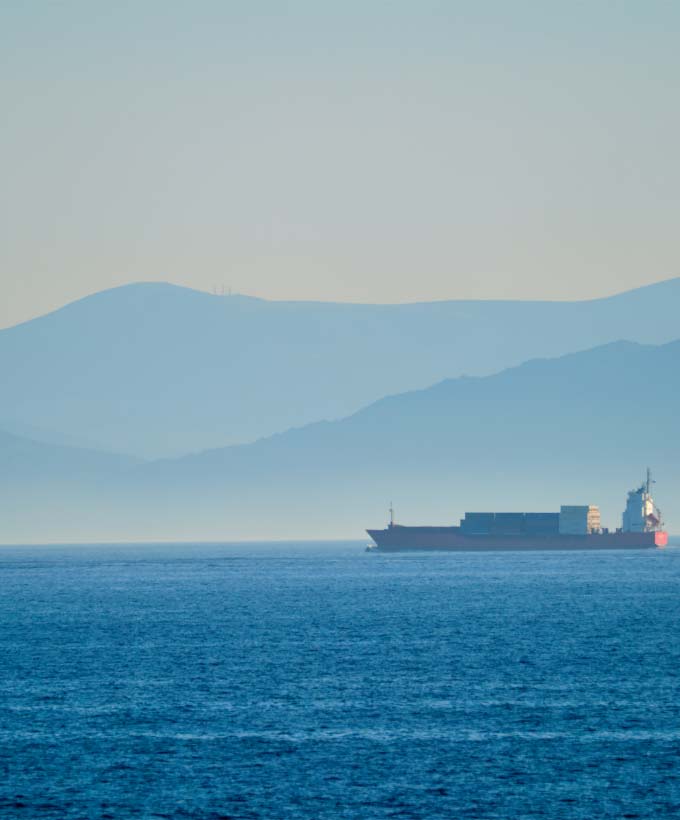Presentation
Founded in 1967, the Ocean Engineering Program (PEnO) at COPPE/UFRJ, is a pioneer in the training of high-quality human resources to work in the areas of Naval, Oceanographic, Ocean and Coastal Engineering. PEnO is a member of the Alberto Luiz Coimbra Institute for Post Graduate Studies and Engineering Research (COPPE), at the Federal University of Rio de Janeiro (UFRJ). Traditionally, PEnO has always had a strong interaction with the productive sector, first in the design and construction of ships, and in the last four decades on relevant topics, such as off-shore production of oil and gas, maritime and fluvial logistics transport and the use of renewable energies. With regard to the physical environment, PEnO has extensive engineering activities applied to the sustainable development of coastal, fluvial and estuarine environments.
COPPE/UFRJ’s Ocean Engineering was ranked 17th in the world among the main Marine / Ocean Engineering centers.
Shanghai Ranking 2020
PEnO is a consolidated graduate program, consisting of a robustly trained faculty staff, from renowned universities of Brazil and abroad. PEnO has a wide laboratory infrastructure, similarly internationally recognized for the technological and scientific work carried out in these facilities. The results contributed to the advancement of knowledge in important areas of naval and oceanic research, as well as to the advancement of offshore engineering.
Areas
The Program consists of two research areas: (i) the Naval and Ocean Engineering and (ii) the Coastal and Oceanographic Engineering.
In the Naval and Oceanic Engineering area, courses and research are mainly oriented towards the design, construction and use of oceanic structures that enable waterway transportation and the use of sea resources, with an emphasis on oil and gas production and, more recently, in the generation of energy by renewable sources in the ocean (waves, tides, currents, temperature gradients and winds). The research projects associated with this area deal with the hydrodynamic and structural behaviour of oceanic systems, including subsea production systems (pipelines, risers, umbilical and other equipment), ship design, oil platforms and SUVs, design computer-assisted methods, vessel energy efficiency, waterways, and maritime and fluvial logistics operations.
The Coastal and Oceanographic Engineering area deals with physics of the coastal, fluvial-estuarine and marine environments, as well as anthropogenic interventions in these ecosystems. This area deals with the flow dynamics and water quality in coastal and oceanic environments; technological applications of underwater acoustics; atmosphere-ocean interactions; coastal, lakes, rivers and estuarine sedimentological processes; wave generation and propagation; engineering projects for maritime and port installations; and coastal management studies, on maritime and lakeshores.
Students
In 2019, PEnO has 116 master students and 95 doctoral students. The high-level training of masters and doctors provided by PEnO is recognized by the productive private sector and the academy. PEnO graduates have distinguished themselves in several companies and government agencies with a focus on maritime activities, such as classification societies, offshore oil and gas companies, maritime transport companies, the Brazilian Navy, and governmental regulatory or environmental management agencies, as well as, universities dedicated to the teaching of coastal and naval engineering. Due to the growth of research activities in technological areas, the number of doctoral students and postdoctoral researchers of foreign nationality has grown, mainly from Latin America, Europe and Asia and Portuguese-speaking African countries.
Professors
All PEnO professors have also relevant performance in several undergraduate courses at the UFRJ Polytechnic School, such as Naval and Ocean Engineering, Civil Engineering, Petroleum Engineering and Environmental Engineering. It should be noted that there are relatively few undergraduate and graduate courses in Naval Engineering and Petroleum Engineering in Brazil and abroad, and only one undergraduate course in Civil, Coastal and Port Engineering (FURG). It is worth noting that the Polytechnic School of UFRJ, through the Department of Water Resources and Environment of the Civil Engineering Course, offers training in Coastal and Port Engineering through the 70s.
The PEnO staff has a doctorate from renowned international institutions, such as MIT (Massachusetts Institute of Technology), NTNU (Norwegian University of Science and Technology), Imperial College London, University College London, Berlin Technical University, University of Texas, among others.
Internationalization
The international insertion of PEnO is very significant, with professors being members of editorial boards of scientific journals, international technical committees, including executive committees, which allows an effective exchange of experiences, which is reflected in teaching, research and interaction with industry. PEnO is a reference in Brazil with regard to teaching and research in the Naval and Ocean Engineering area, as well as, Coastal and Oceanographic Engineering area, attracting students from different regions of Brazil. International cooperation has attracted more and more students from Asia, Europe, South America and Africa. Foreign students represent about 20% and have intense participation in post-doctoral programs. It should be noted that the PEnO trained several doctors who currently teach at various universities in Brazil and abroad, with emphasis on China, where seven former doctoral students are currently professors at the China University of Petroleum, making it possible to expand technologies for offshore activities in that country. Research and publications in international journals demonstrate this intense cooperation. Graduates from the Coastal and Oceanographic Engineering area have worked in international companies, in Brazil and abroad, as well as in international research institutes.








